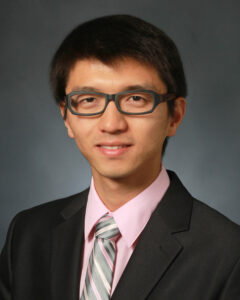http://s.uconn.edu/meseminar1/21/22
Abstract: Recent advances in electronics enable powerful biomedical devices that have greatly reduced therapeutic risks by monitoring vital signals and providing means of treatment. Conventional electronics today form on the planar surfaces of brittle wafer substrates and are not compatible with complex body tissues. Soft and implantable devices can help us better understand the behavior and effects of various diseases. This talk presents the challenges, design strategies, and novel fabrication processes behind a potential medical device that (a) integrates with human physiology, and (b) dissolves completely after its effective operation. The integration of the deformable multimodal sensing platform with stretchable antennas, micro-supercapacitor arrays, and energy harvesting modules further yields a self-powered stretchable wireless sensing system for next-generation bio-integrated electronics and environmental sensing.
Biographical Sketch: Dr. Huanyu “Larry” Cheng is an Assistant Professor of Engineering Science and Mechanics with courtesy appointments in the Department of Biomedical Engineering, Department of Mechanical Engineering, Department of Architectural Engineering, Department of Industrial and Manufacturing Engineering, and the Department of Materials Science and Engineering at Penn State University. His research group focuses on the design, fabrication, and application of stretchable and dissolvable multimodal sensors for biomedicine. Larry has co-authored more than 100 peer-reviewed publications with total citations >13,000 and an H-index of 46 according to Google Scholar. His work has been recognized through the reception of numerous awards, including the 2022 Minerals, Metals & Materials Society (TMS) Functional Materials Division (FMD) Young Leaders Professional Development Award, the 2021 NIH Trailblazer Award, 2021 Scialog Fellow in Advancing BioImaging, 2021 Frontiers of Materials Award from TMS, First and Second Place in the Ben Franklin TechCelerator Pitch in 2020 and 2021, respectively, ACS Petroleum Research Fund New Investigator in 2018, Forbes 30 Under 30 Science category in 2017, elected member of the Global Young Academy for scientists under age 40 in 2016, among others. He also serves as the associate editor for 7 journals and reviewer for 185 international journals.
